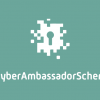- Anti-Social Behaviour
- Mental Health
- Drugs, Legal Highs, Alcohol and County Lines
- Knife Crime Awareness
- Domestic Abuse
- Keeping Safe Online
- Prevent, Radicalisation and Extremism
- Vaping
- Sexual Health
- Sexualised Behaviour
- Teen Relationship Abuse
- Teen Sexual Harm Advice
Mental Health
Self Harm
Managing Self Harm Tool Kit
This tool kit has been produced by Hampshire Safeguarding Children’s Partnership with an aim to provide practical tools and resources to:
- Foster a receptive and open culture of support for children who self-harm.
- Help professionals and parents/carers to feel more confident in supporting children who self-harm.
These resources were developed in response to the COVID-19 pandemic and the resulting lockdown. We hope you find the resources valuable and please adapt them where necessary to meet the individual needs of the child.
Drugs, Legal Highs, Alcohol and County Lines
Recognising the importance of linking children’s learning at school and among peers to their life at home, it is recommended you speak to your son/daughter about drugs and legal highs about the impact it can have on their life.
This is also an opportunity to set boundaries and give reassurance that they can speak to you if they ever find themselves affected by drugs.
Why young people might try dugs?
It is common for young people to try smoking, drinking alcohol and drugs; its part of ‘pushing boundaries’ and ‘risk taking behaviour’ associated with growing up and does not mean every child who tries drugs will become addicted or involved in crime. However, it is important that parents, as professionals will, do not ignore the risks, or excuse it as their child ‘just having fun or experimenting’.
Research by the Royal College of Psychiatrists show up to half of young people will have tried an illegal drug before they are 16 years old, the likelihood is increased if their friends or family use them.
Young people try or use drugs for various reasons including fun, curiosity, peer pressure or to cope with difficult situations, worry and/or low mood; the likelihood of this is increased if their friends or family do.
Another risk to young people becoming involved in drugs is criminal exploitation. Organised drug gangs will travel into counties from major cities to ‘recruit’ children to sell drugs and move money for them, enticing them with a ‘lucrative lifestyle’ of money and expensive possessions. This issue is referred to by the Home Office as County Lines.
What is the law?
All illegal drugs are graded according to the risk they pose and are classified as either class A, B or C drugs. It is a criminal offence to possess, supply to others or manufacture any banned substances.
Psychoactive substances, commonly termed ‘Legal Highs’ are synthetic forms of illegal drugs, manufactured to make the user feel the effects of the real drug and which are highly dangerous. Changes to the law in 2016 made it illegal to supply any ‘legal high’ for human consumption; this includes selling, or even giving, psychoactive substances to friends or anyone else for free.
How the police deal with a drug offence depends on the class of the drug and the offence committed; all drug related incidents will be recorded by police. If your child is under 18 years old commits his/her first offence, they may receive a warning or a caution. If they go on to commit further offences, including selling or smuggling drugs, they may be dealt with by a Youth Court where they can receive a criminal record which can impact their future employment and travel to certain countries. It is important they know this to encourage them to make informed, positive choices.
As a parent you risk breaking the law by turning a blind eye. If you know that your child is using or sharing illegal drugs in your home and you do nothing to stop it, you may be committing an offence. If you take drugs from your child, you must either destroy them or hand them to the police as soon as possible. By having the drugs in your possession you may be committing an offence, even if you have no intention of using them.
How will I know if my child is involved with drugs?
There is “no one sign” to indicate a child may be using or experimenting with drugs, there are a number of common signs that parents can be aware of which may indicate drug use, especially changes which are out of character.
- Appearance and lack of care about personal grooming
- Choice of friends
- Openness with you; being secretive and dismissive
- Mood swings; irritable and grumpy change to happy and bright
- Withdrawal from family members
- Loss of interest in hobbies, sports and other favourite activities
- Changed sleeping pattern; up at night and sleeping during the day
- Changed eating habits; eat more or less and at random times
- Red or glassy eyes, sniffly or runny nose
- Less, or more, money and possessions
Changes can be simply related to growing up, not just displayed by young people using drugs.
What can I do to help my child?
Research shows that young people who develop issues with drugs, the involvement and support of parents and families can make a big difference to their ability to deal with the problem.
Prevention
- Be open – talk with your child about drugs as part they grow up so they can reassured about coming to you if they are ever affected
- Encourage them to be aware and responsible to pressures associated with drug use to promote a positive, safe attitude and resilience.
- Educate yourself so you are aware of drug trends, signs and laws.
- Know where your child is, who they are with and what they are doing.
Response
- Reassure them.
- Listen to them: how they feel, what’s going on their life, be guided by how they want to tackle it and what is best for them.
- Find out more about the effects of drugs your child is using to help you support them through the process of tackling their use
- Ensure they are aware of the choices to address their problem and that they have an understanding of the law.
If a family member, or a close friend is using drugs, it is important that they also seek help as that would make hard to expect the young person to give up, especially if a parent is using it too.
What if I need help?
Often parents are unable to resolve the situation for their child and need help from expert services; they may also find it necessary to involve the school, club/youth group or the police to help address what is happening. This is perfectly understandable and often what is required to help your child.
- Drugs services, counselling services, and self-help groups offer support for you, your child and the family
- Seek help and support from other parents, friends or teachers.
- The following link provides information and advice on signs to look for and where to access further support, if you think your child may be involved in dealing drugs or gang related exploitation: County Lines help and support
Support Services
A vast number of organisations provide national and local support services to help children, parents and the family cope with issues related to drug use.
Hampshire Police
https://www.hampshire.police.uk/contact/af/contact-us/
Tel: 101 for non-emergency assistance
If your child is in immediate danger call 999
Adfam
Service providing support for professionals and families affected by drugs and alcohol:
http://www.adfam.org.uk/
Catch22
24/7 support and advice for young people U18 affected by substance misuse:
https://www.catch-22.org.uk/
Tel: 0845 459 9405
Childline
Service providing support specifically for children and young people:
http://www.childline.org.uk
Helpline: 0800 1111
Fearless
Information and advice for young people about crime; also providing an anonymous safe place to give information about crime in their area:
https://www.fearless.org
NSPCC
Tips & Advice for Parents and Professionals:
https://www.nspcc.org.uk/preventing-abuse/keeping-children-safe/drugs-alcohol/
Talk to Frank
Advice for parents, A-Z of drugs and local services:
http://www.talktofrank.com/worried-about-a-child
Victim Support
https://www.victimsupport.org.uk/
Tel: 0845 30 30 900
(8am – 8pm Mon – Fri; 9am – 7pm weekends; 9am – 5pm bank holidays)
NHS Inclusion
Support for young people affected by drugs and alcohol. Self referral available online or via telephone.
Website: https://www.inclusionhants.org/support-for-under-25s/
Phone: 0845 459 9405
Al-Anon UK
Support for anyone who’s life has been affected by someone else’s alcohol consumption.
Website: https://www.al-anonuk.org.uk/
I am text block. Click edit button to change this text. Lorem ipsum dolor sit amet, consectetur adipiscing elit. Ut elit tellus, luctus nec ullamcorper mattis, pulvinar dapibus leo.
Knife Crime Awareness
This resource area is designed for parent/carer support in relation to knife crime awareness.
The below links provide some useful information to help with raising awareness alongside increasing knowledge & understanding.
Domestic Abuse
This information provides parents, carers and guardians with advice and support relating to domestic abuse as part of our commitment to working in partnership to keep children and young people safe.
Recognising the importance of linking children’s learning at school and among their friends into their life at home, it is recommended you speak to your children/young people about abuse in relationships as education and awareness raising can prevent them being involved in domestic abuse as they grow up.
Talking to them provides an opportunity for you to:
- help them understand what domestic abuse is in a relationship
- educate about safe and positive choices to avoid becoming a victim or an abuser
- inform them of where and how to get help and support from services
- reassure them they can speak to you if ever they find themselves worried or affected by domestic abuse in their life.
More information can be found, in the fact sheet using the button below.
Domestic Abuse Support Services
Hampshire Police
Tel: 101 for non-emergency assistance
If your child is in immediate danger call 999
Victim Support
Tel: 0845 30 30 900 8am – 8pm Mon-Fri; 9am – 7pm weekends; 9am – 5pm bank holidays
Stop Domestic Abuse is an innovative and unique provider of all services to those affected by domestic abuse.
Hampshire Wide Helpline: 0330 016 5112
Email: advice@stopdomesticabuse.uk
Galop (Previously Broken Rainbow)
Registered charity providing support for victims and survivors of domestic abuse in the LGBT+ Community.
Respect UK
Working with domestic violence perpetrators, male victims and young people
Freephone: 0808 802 4040 (Mon – Fri 9am-5pm)
Email: info@respectphoneline.org.uk
Women’s Aid
National charity working to end domestic violence against women and children
Freephone: 0808 2000 247 (24hr National helpline)
Email: helpline@womensaid.org.uk
Refuge – National Domestic Violence Helpline
National 24-hour helpline for women experiencing domestic violence, their family, friends, colleagues and others calling on their behalf.
Freephone: 0808 2000 247
Respect, Men’s advice Line
A confidential helpline for men experiencing domestic violence and abuse from a partner or ex-partner.
Freephone 0808 801 0327 (Mon – Fri 9am-5pm)
Email: info@mensadviceline.org.uk
Karma Nirvana
Supporting victims of honour based abuse and forced marriages
Helpline: 0800 5999 247 (Mon to Fri 09:30 -17:00)
Suzy Lamplugh Trust – National Stalking Helpline
Run in partnership with the Suzy Lamplugh Trust to provide information and guidance on the law, reporting stalking, gathering evidence, staying safe and reducing the risk.
Freephone: 0808 802 0300
The Holly Gazzard Trust
Provides advice, information about staying safe including the HollyGuard app which turns a smartphone into a personal alarm.
Keeping Safe Online
Recognising the importance of linking children’s learning at school and among their friends to their life at home, it is recommended you speak to your child about their safety and behaviour when they are online.
This is also an opportunity to set boundaries and give reassurance that they can speak to you if they ever find themselves affected by cyber-bullying or any other online issues.
The information and links to other resources on this page are intended to support you to have this conversation, and expand your understanding of online safety in general. A quick reference information leaflet is available via the link button below.
Cyberbullying Advice for Parents
What is cyber-bullying?
Cyber bullying is a form of bullying that takes place online using electronic media such as mobile phones, carried out by one person or a group. Types of bullying can include blackmail/threats, abusive comments, spreading rumours, sharing embarrassing pictures or creating fake profiles on social media sites.
Cyberbullying can be one of the toughest types of bullying to cope with. Smartphones and other devices mean there is no escaping it and so it can continue to happen around the clock. Words and images are preserved online for others to see which can contribute to more people joining in on bullying.
What is the law?
Cyber-bullying is not a crime in itself, the acts and behaviours within incidents of online bullying can amount to offences and would be dealt with accordingly. Cyber-bullying is not a crime in itself, the acts and behaviours within incidents of online bullying can amount to offences and would be dealt with accordingly. Laws to assist Police to deal with cases of cyberbullying include:
- The Protection from Harassment Act of 1997
- The Malicious Communication Act of 1998
How do I know if my child is being cyber-bullied?
There is “no one sign” to indicate a child is being bullied online, there are a number of things that parents can be aware of which may indicate their child is being bullied, especially those which are out of character which may prompt the need to ask them ‘Are you okay?’There is “no one sign” to indicate a child is being bullied online, there are a number of things that parents can be aware of which may indicate their child is being bullied, especially those which are out of character which may prompt the need to ask them ‘Are you okay?’.
- Appearing anxious, upset or abrupt after using their device This can indicate your child’s experiences online are not pleasant ones, which may suggest they are being bullied or facing other online issues.
- Changes to their ususal use of their deviceAlthough no child wants their parents looking at their messages, if they appear more protective of their device, are using it more or less than usual or doesn’t want to talk about it if you bring it up, this could be a red flag.
- Mood ChangesChildren being bullied can experience spontaneous changes in mood at times when it is affecting them most. Although all children have ups and downs, be aware of extremes which make you think ‘that’s not like them’.”
- Avoiding school or social situationsAlthough it’s common to want to go to school, a refusal to go which is out of character may be a sign that something is wrong. Online bullying is often carried out at school, involve school peers or linked to something going on at school. Same applies to clubs or groups they belong to.
- IllnessComplaint of illness, or effects on wellbeing which are out of character and which tie in with having to go to school or on social occasions are signs to be aware of. They may not be faking – it’s well evidenced that children being bullied suffer effects on their mental health as a result of stress and anxiety.
What can I do as a parent?
Reassure them
If you’re worried your child is being bullied online, the advice from the NSPCC is to let them know that you want to help them put a stop to it.If you’re worried your child is being bullied online, the advice from the NSPCC is to let them know that you want to help them put a stop to it.
- Encourage them to talk to someone they trust – this may not be you
- Reassure them they are believed and there is support to help them, making sure they know how to access the relevant services
Help them cope and manage the process
Listen when they need to talk, keep calm, don’t judge and don’t underestimate the effect it is having on them
- Help them find coping mechanisms which doesn’t involve taking their device from them as it can cause additional stresses and anxieties – developing resilience is vital to them getting through the experience
- Be led by them – it’s important they are in control of the situation where possible, understanding their choices, given the time needed to think and decide what is best for them
Block and Report
If the bullying is taking place on a social networking site such as Facebook, Twitter or Snapchat, there is a function which allows the user to block someone. You can also contact them directly, they have policies in place to remove inappropriate material and can even delete the bully’s account.
Report to Facebook
Report to Snapchat
Report to Twitter
Net-aware, in partnership with the NSPCC and O2, provide an A-Z of social media sites and apps to help inform parents.
What if I need help?
Often parents are unable to resolve the situation for their child alone as it is to complex, sensitive or severe; in such cases, it may be necessary to involve the school, club/youth group or the police to help address what is happening. It is perfectly understandable when parents require help and often what is needed to resolve some cases of cyberbullying.
In cases where your child is subject to severe and persistent bullying, it is recommended that all emails, messages and screen shots of social media posts are stored as evidence of the bullying. Although bullying is not a crime in itself, the behaviours and actions of the bullies can be.
Please advise your child not to retaliate, this in turn can be bullying.
Support Services
A vast number of organisations provide services to support children and help them cope with bullying, many now provide advice to help parents support their child through and after experiences of online bullying:
Hampshire Police
https://www.hampshire.police.uk/contact/af/contact-us/
Tel: 101 for non-emergency assistance
If your child is in immediate danger call 999
Anti-bullying Alliance
Tools for Parents:
https://www.anti-bullyingalliance.org.uk/tools-information/advice-parents
CEOP
Keep your children safe from harm:
https://www.thinkuknow.co.uk/parents/
Common Sense Media
Rates movies, TV shows, podcasts, books, and more so families can feel good about the entertainment choices they make for their kids. They offer the largest, most trusted library of independent age-based ratings and reviews. Their timely parenting advice supports families as they navigate the challenges and possibilities of raising kids in the digital age.
https://www.commonsensemedia.org/
Department of Education
Advice for Parents & Carers on Cyberbullying (pdf): https://www.gov.uk/government/uploads/system/uploads/attachment_data/file/444865/Advice_for_parents_on_cyberbullying.pdf
Internet Matters
https://www.internetmatters.org/issues/cyberbullying/
NHS
Advice for Parents:
https://www.nhs.uk/Livewell/Bullying/Pages/Bullyingadviceforparents.aspx
NSPCC
Tips & Advice for Parents:
https://www.nspcc.org.uk/preventing-abuse/child-abuse-and-neglect/bullying-and-cyberbullying/keeping-children-safe/
UK Safer Internet Centre
https://www.saferinternet.org.uk/blog/cyberbullying-advice-parents-and-carers
Victim Support
https://www.victimsupport.org.uk/
Tel: 0845 30 30 900
8am – 8pm Mon – Fri; 9am – 7pm weekends; 9am – 5pm bank holidays
Information Leaflets
Online education websites for you and your children, providing information and activities to help learn the importance of being safe and responsible online.
CEOP
ThinkUknow for kids:
https://www.thinkuknow.co.uk/
Age 4-7 Website and Guide for Parents and Carers
Childline
Help with bullying:
https://www.childline.org.uk/info-advice/bullying-abuse-safety/types-bullying/
Children can call Childline for free advice and support 24/7 on 0800 1111
Childnet
http://www.childnet.com/young-people
Prevent, Radicalisation and Extremism
This information provides parents, carers and guardians with advice and support regarding radicalisation and extremism as part of our commitment to working in partnership to keep children and young people safe.
Recognising the importance of linking your child’s learning at school and between peers to their life at home, speaking to your son/daughter about the topic of radicalisation and extremism is encouraged to help them understand and give them with reassurance that they can speak to you if they ever find themselves worried or affected.
ACT Early
ACT early provides advice and support to anyone that has concerns about themselves or a friend/family member, they provide a confidential platform to discuss your concerns. No concern is too trivial.
Educate Against Hate
Messages of hate can take many forms. Extremist groups use them to recruit young people. Educate Against Hate provides Parents with answers to common questions and resources, to help protect your child.
Net Mums
Net Mums provides support and advice for parents/carers on a range of topics, and sign posts to external agencies who can provide further information. The button below will take you to the Net Mums advice page for ‘Online Radicalisation and Extremism’
Vaping
This resource area is designed for parent/carer support in relation to Vaping.
The below links provide some useful information to help with raising awareness on the crackdown of selling illegal vapes.
There is also a PowerPoint produced by Police/School Wales which helps to increase knowledge & understanding.
Sexual Health
NHS Let’s Talk About It
Parents and carers as well as young people can find it embarrassing and challenging to talk about sex especially if you are unsure about how to approach the subject.
Having open and honest discussions about sex and relationships helps your child to recognise the positive behaviours and to protect and safeguard them when they are ready to explore sex and sexuality.
NHS Let’s Talk About It provides links to websites that can provide information about sexual health, sex and relationships to support you in your conversations.
.
Sexualised Behaviour
Stop It Now
Stop it Now’ is a website designed to provide support and information for parent/carers and professionals to help prevent child sexual abuse. You can visit the website here:
Sexting
The factsheet below has been created to help you as a parent/carer to understand the risks of sexting, and how best to support your child/young person. It includes facts and information about sexting, as well as signposting to support services, please click on the link to access.
Teen Relationship Abuse
This information provides parents, carers and guardians with advice and support relating to teenage relationship abuse as part of our commitment to working in partnership to keep children and young people safe.
Recognising the importance of linking your child’s learning at school and from their friends to their life at home, it is recommended you talk to your son/daughter about what makes a relationship healthy and safe as relationship abuse is a rising concern among teenagers.
Talking to your child provides an opportunity for you to help them:
- understand qualities that make a relationship loving, respectful and safe, to apply these to their relationships now and in the future.
- understand signs of abuse in a relationship and the consequences an ‘unhealthy’ and ‘unsafe’ relationship can have for them.
- know how to spot the positive and negative signs in a relationship to protect themselves from becoming a victim or an abuser (perpetrator).
- know they can always speak to you if they find themselves confused, worried or concerned by what’s happening in their relationship
- know where and how they can get help and support from other specialist services if ever they need to.
What is Teen Relationship Abuse?
This is a term given to abusive behaviour taking place in a relationship between two teens.
Surprisingly, this isn’t as uncommon as many parents think, research by organisations such as the NSPCC show a rise in the number of teens who report to have experienced sexual or physical abuse from their teen partner.
As well as sexual or physical, other forms of abuse include, but not limited to:
- threats / insults
- emotional abuse
- isolation from friends and family
- controlling what they wear or who they socialise with
- monitoring and controlling where they are/what they are doing
Controlling behaviour is likely to escalate into violence and patterns of abusive behaviour.
Teenage relationship abuse is often hidden because teens:
- have little experience of relationships so may not recognise abuse
- have ‘romantic’ views of love so may ignore / excuse abuse
- can be under pressure from their peers to act cool about everything
- accept the abuse for fear of, or in preference to, being single
What are the risks to my child?
The risks to teens in relationships varies from exploitation, physical and emotional harm through to a police or criminal record. It is important your child is aware of these to help them develop the skills needed to assess risky situations and keep themselves safe.
Victim or abuser
Teens are at risk of being abused, or abusing their teenage partners at any point growing up, regardless of gender. Research suggests it is more common for girls to be victims of abuse in teen relationships, however, boys are definitely at risk, just less likely to report it. Girls are equally as capable as boys of being the abuser in relationships.
Mental Health and Wellbeing
Abuse in a relationship can have a huge impact on a teenager’s physical and mental wellbeing. Victims often describe the effects of feeling isolated, helpless, scared, and worthless, leading to severe anxiety, depression, drug and alcohol problems, self-harm and in extreme cases suicide.
Child Sexual Exploitation (CSE) – ‘Older partner’
Although the term CSE is often thought of as an adult forming a trusting friendship / relationship with a young person U18 with the intention of exploiting them for sex / sexual purposes, this form of abuse can still happen between teens. For example, the ‘trend’ among young people of having an older boy/girlfriend:
‘A 14 year old in a relationship with a 17 year old who is abusive towards them. The 17 year old but makes them believe they love and care for them and that they can trust them; they use this trust to manipulate and control the 14 year old to do whatever the older partner wants them to do which will often relate to sexual acts and behaviours.’
Sexual Health
Relationship abuse can also have a significant affect a teen’s sexual health ranging from risk-taking sexual behaviour to unwanted pregnancy and sexually transmitted infections.
Committing offences
Teens’ who abuse their partners could be charged with offences as a result of their behaviour; it is important your child is fully aware that details of cases reported to police will be held on record and can be disclosed in the future to prospective employers when applying for jobs, or to visa departments when applying to travel abroad.
What is the Law?
As with the term domestic abuse, teen relationship abuse itself is not an offence; it is the acts and behaviours the abuser subjects their victim to which determines the offence, i.e. assault, theft, harassment and criminal damage.
What makes teen relationship abuse different to domestic abuse in law is age; the definition of domestic abuse in law applies to people over 16 years old.
- Where couples are over 16 years old, investigations and offences are likely to be dealt with as a domestic abuse related case.
- Where the ages of teen couples are wider, i.e. 13 years old and 17 years old, cases will not be dealt with as domestic abuse related but can be dealt with as child exploitation.
Impact of criminal investigation or conviction
Any offence committed against a person under 18 years old is serious and will be dealt with as such, even when the offender is also under 18 years old.
It is important your child knows that being investigated, whether charged or not charged with an offence, can impact their future work and travel prospects.
When a case is reported to police, investigated and leads to a young person being charged with an offence, they will have a criminal record. This record can be disclosed in vetting checks in the future and can impact on certain opportunities such as working with children.
When a young person is investigated but not charged, details will still be recorded and held on police record, this is not a criminal record.
Although not a criminal record, your child needs to know that details of their involvement can still be disclosed to future employers or travel departments when enhanced levels of vetting is requested.
What can I do as a parent?
In a fast changing world, it’s not easy to discuss topics like this with your child, but little things you can do to help them learn can really benefit their future.
Below are some key pointers to support parents to help their children:
Talk
Knowing there are risks to young people in their relationships as they grow up, highlights the importance of talking to your child about their life now and in the future. Talking is an opportunity raise their awareness of the signs of abuse in relationships to help them know how to identify signs of abuse, and to know what makes a safe and loving relationship. Discussing this with your child can help them develop the skills and knowledge to recognise risk and know what to do to keep themselves safe.
Educate yourself
Learning more about teen relationship abuse yourself will give you a good understanding to help you discuss this with your child; in particular, why it happens, signs, effects, the law and getting support. Below is some information about teen relationship abuse to support you.
Signs that a teen may be being abused by their partner can include, but are not limited to:
- being angry or irritable when asked how things are
- being withdrawn or quieter than usual
- changing their appearance, clothes, make up or style
- constantly checking a mobile phone, and getting upset when asked to turn it off
- isolation – no longer spending time with family/usual friends
- making excuses for a boyfriend or girlfriend
- self-harm
- signs of physical injury, unexplained scratches or bruises
- truancy or falling grades
Peer pressure and the desire to have a partner can also play a part in relationship abuse; teens can feel they’d rather have a boy/girlfriend who is abusive them than to not have a partner at all.
Types of abuse in a relationship can include, but are not limited to:
- checking up on you all the time to find out where you are and who you’re with – often by mobile phone / social media
- gets angry and aggressive, trouble controlling emotions
- gets physical or forceful in arguments
- jealous and possessive
- looking at your phone without your permission
- physical violence – hitting, kicking, pushing, slapping
- pressuring into sex
- telling you what to wear and what to do
- verbally abusive, says things to make you feel bad or inadequate
- won’t let you see friends
Controlling and possessive behaviour can happen over time, your teen may not recognise this as unhealthy or as abuse, possibly viewing it as ‘something they should put up with’, normalising the behaviour, or seeing it as their partner ‘only messing around’.
These behaviours are not signs of love or caring, they are controlling and intended to have power of a person.
Ensure your child understands they are never to blame if someone tries to make them do things that they don’t want to do. Likewise, the abuser in a relationship may not recognise their behaviour as abuse, seeing it as normal or not meaning it, only messing around.
It is important your child knows that if they behave in a way that is abusive, it is not right and they should seek support to address any reasons/issues they think may contribute to the abusive behaviour.
Reassure
It is important to tell your child that they can come to you at any time for support if ever they find themselves worried or pressured by anyone or any situation.
This reassurance can give the confidence to come to you without fear of being judged, knowing they will have your support in any risky or challenging situation. Without reassurance, children can find it difficult to ask for help – not seeking help early-on can worsen a situation and the overall impact on them.
Support Services
Many organisations provide help and advice for parents talk to teens and how best to approach abuse in relationships, with some specifically set up for teens affected by abuse, some are listed here for your information:
Hampshire Police
Tel: 101 for non-emergency assistance
If your child is in immediate danger call 999
Victim Support
Tel: 0845 30 30 900 8am – 8pm Mon-Fri; 9am – 7pm weekends; 9am – 5pm bank holidays
NSPCC
Help for adults concerned about a child
Call 0808 800 5000
Karma Nirvana
Supporting victims of honour based abuse and forced marriages
Tel: 0800 5999 247 (Mon to Fri 09:30 -17:00)
NHS
Advice for parents and young people.
National Domestic Violence Helpline
Freephone 0808 2000 247 (for teens and young people as well)
Respect
Support for those who cause harm their partners
Men’s advice line: 0808 801 032
Respect hotline: 0808 802 4040
Services for young people
Childline
Free confidential service for young people under 19, provided by NSPCC
Tel: 0800 11 11
Catch22
Provides a wide range of support services designed to help resolve complex difficulties experienced by young people and their families/carers
No limits (Southampton)
Free confidential service for young people in Southampton
Phone: 02380 224 224
Safer Portsmouth
Advice and support for domestic abuse
Tel: 023 9268 8472
Treetops Centre
Service available to any male or female, 13+ who has been a victim of rape or serious sexual assault in Hampshire and IOW.
Tel: 023 9221 0352 (7 days a week, 8.00am to 6.00pm)
Disrespect Nobody
Safe4me supports the Disrespect Nobody campaign, a dedicated website for teens to tackle the issue of teenage relationship abuse.
Teen Sexual Harm
Teen Sexual Harm Advice and Support
This information provides parents, carers and guardians with advice and support relating to youth related sexual harassment and assault as part of our commitment to working in partnership to keep children and young people safe.
Recognising the importance of linking children’s learning at school and among their friends into their life at home, it is recommended you speak to your son/daughter about sexual behaviour (within a similar age group) to help them understand when certain actions or comments could cause harm and could be seen as harassment/assault.
Education and awareness raising can prevent your child being involved in sexual offences as they grow up, either as an offender or as a victim.
The button below will take you to a guide produced by the Children’s Commissioner, to support you in having conversations regarding sexual harassment with your child.
Support Services
- Tel: 101 for Non Emergency Assistance
- Tel: 999 If your child is in immediate danger
- Tel: 0845 30 30 900 (Lines are open 8am to 8pm Monday to Friday; 9am to 7pm Weekends)
- Help and advice for adults concerned about a child or young person : Tel 0808 800 5000
- Share Aware: Gives parents/carers the skills and confidence to talk to their children about staying safe.
Provides online support and advice for young people on a range of topics.
The Survivors Trust is a UK wide national umbrella agency for 130 specialist organisations, who provide support for the impact of rape, sexual violence and childhood sexual abuse throughout the UK and Ireland.
- Tel: 0808 801 0818 (Mon to Thurs 10am to 4pm and 6pm to 8pm/Friday 10am to 4pm)







